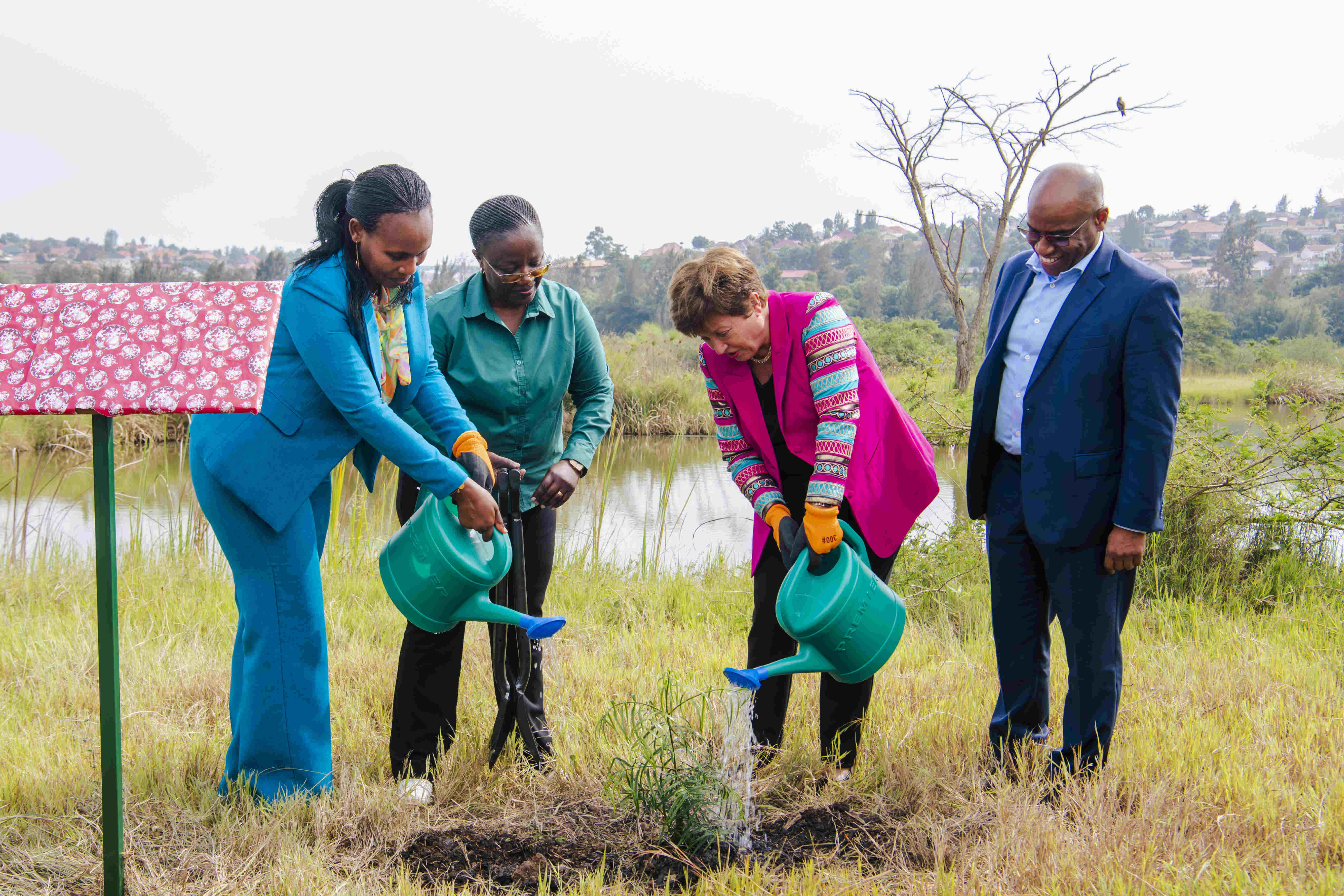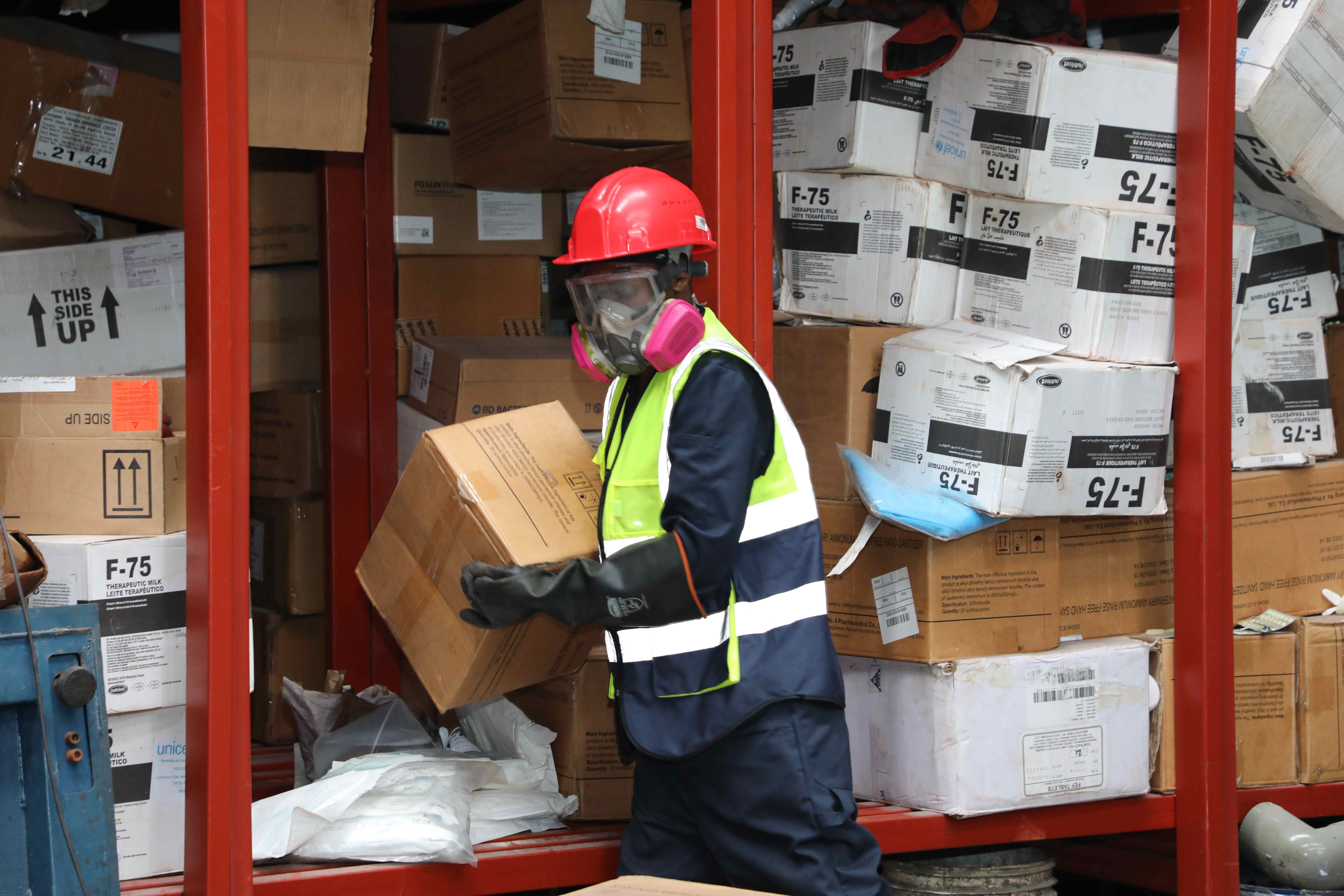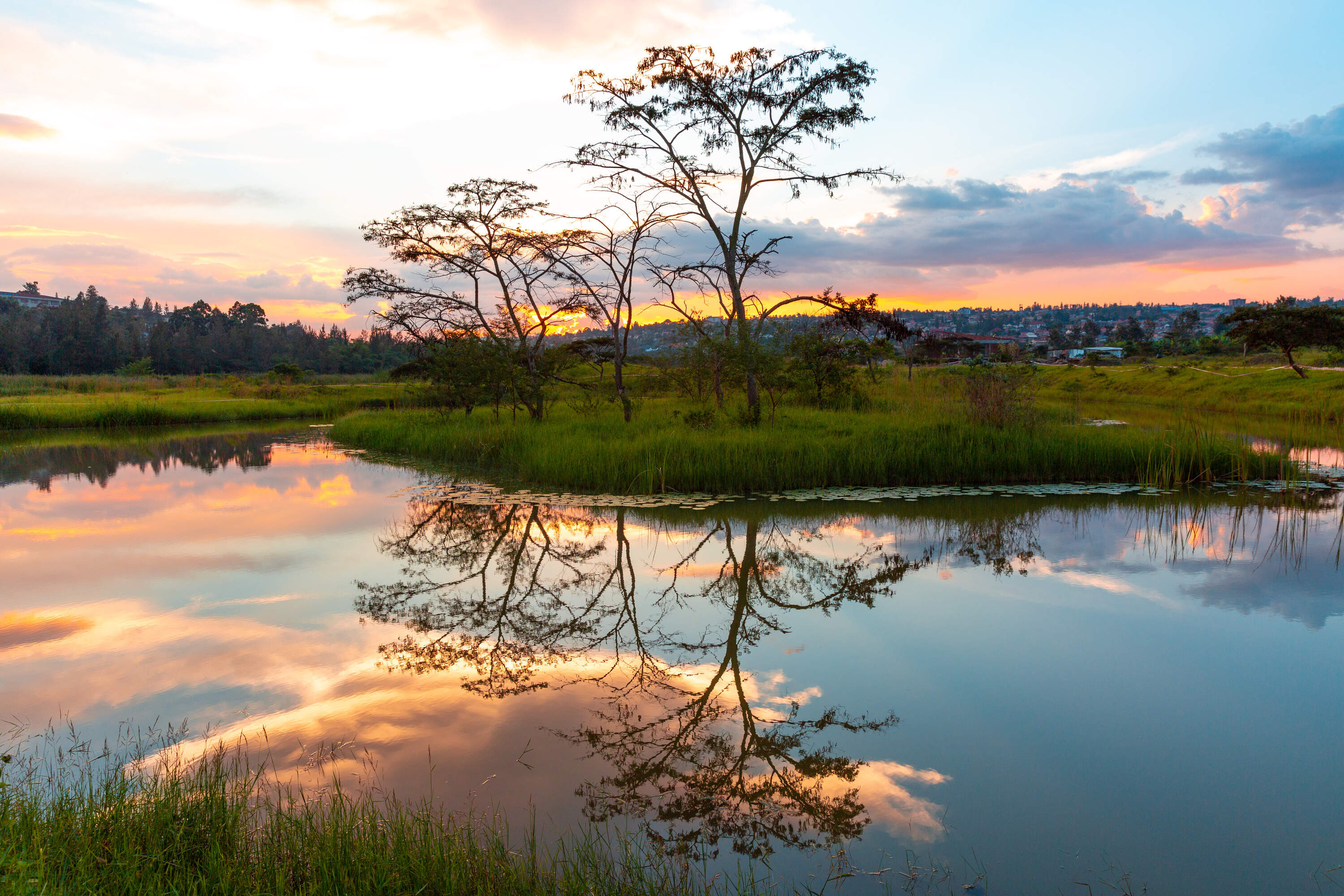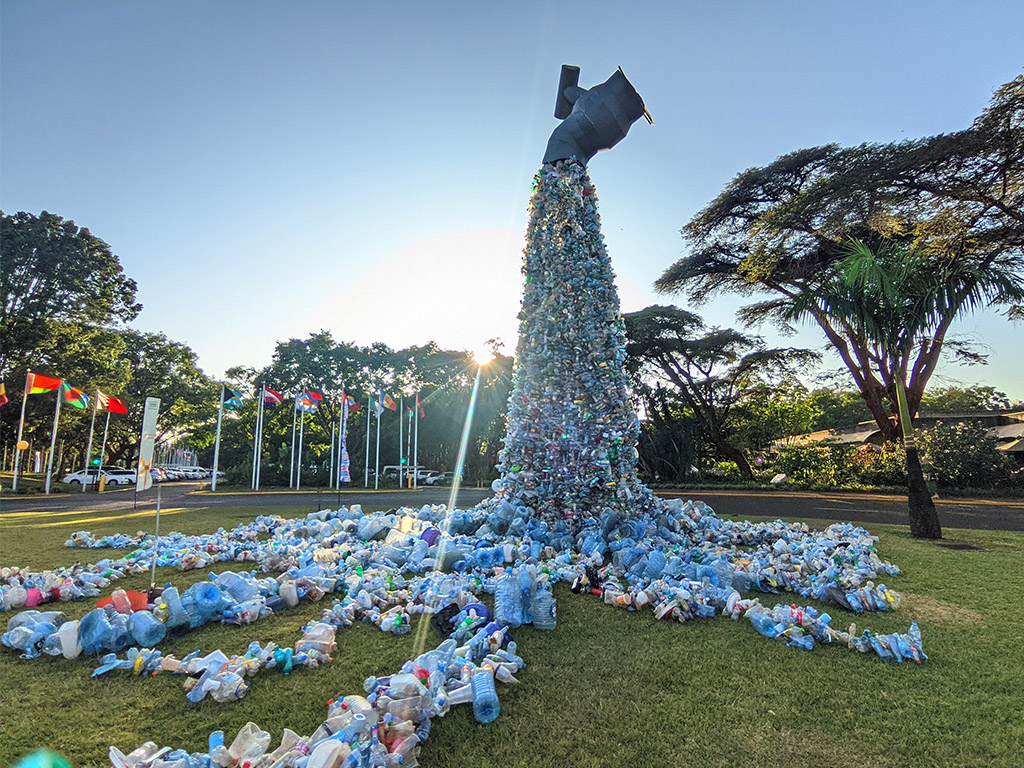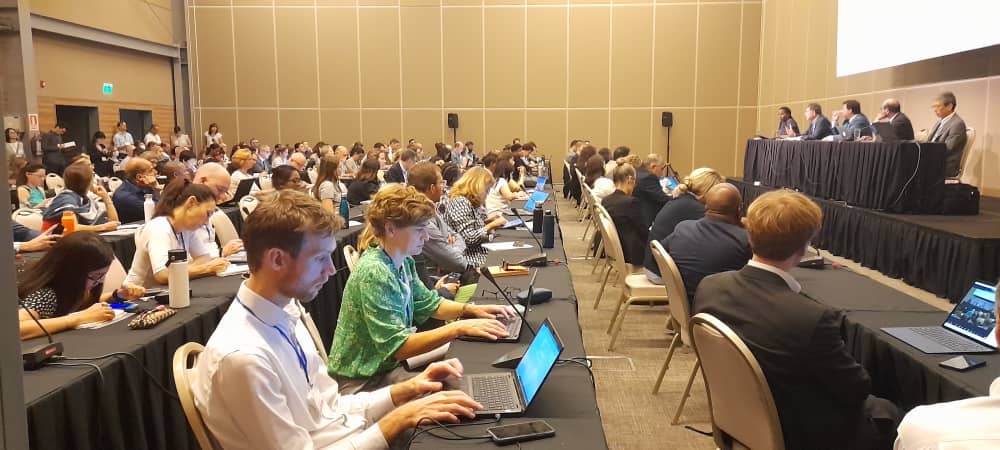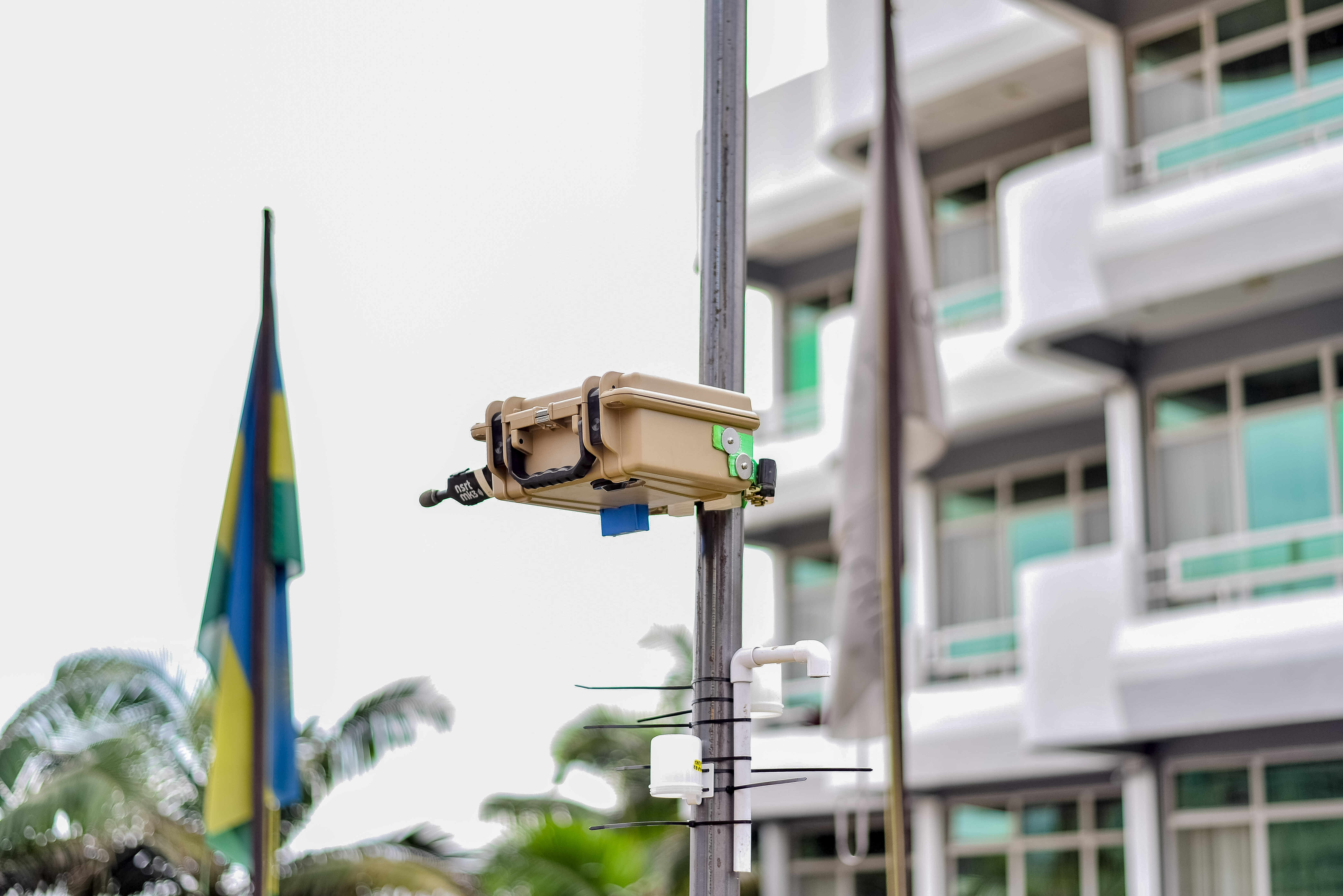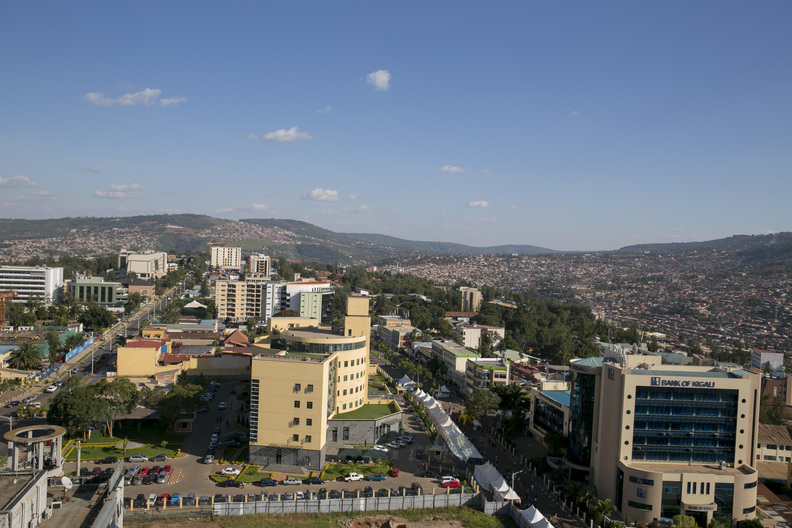
International Day of Clean Air for Blue Skies: Rwanda’s commitment to Preserving Air Quality and Fighting Air Pollution
Rwanda recognizes air pollution in cities and at national level as a serious environmental and health threat. According to estimates from the World Health Organisation, in 2012, about seven million people died from exposure to air pollution while in 2016 alone, ambient air pollution in both cities and rural areas was estimated to cause 4.2 million premature deaths worldwide. The impacts of air pollution have also been felt in Rwanda with over 2000 respiratory disease related deaths in 2012. (Rwanda Inventory of Air Pollution Sources, 2018)
The COVID19 lockdown-caused blue skies have shown the link between human activities and air pollution; air pollution significantly decreased in Kigali City as people stayed home during the national lockdown.
With exertion to raise awareness on this, on air quality improvement and in line with the call from UN Environment, Rwanda will observe the International Day of Clean Air on 7th September 2020 through a National Virtual seminar via Cisco Webex. A joint inspection of vehicles and industries will be organized and exhibition and media campaigns at national and community level will be conducted aimed at:
- Raising awareness of the sources and impacts of air pollution and joint efforts and innovation to improve air quality and to protect human health.
- Demonstrating the close link of air pollution to climate change mitigation and Rwanda`s actions to fulfil the commitments in its National Determined Contributions (NDCs) and sustainable development.
In her address ahead of this important day, Dr. Jeanne D’Arc MUJAWAMARIYA the Minister of Environment emphasized the need for global citizens to recognize that poor air quality in cities and at national level is a now problem. “I continue to encourage global citizens to use public transport, use clean energy at home and plant a tree whenever the opportunity avails itself,” she said.
The Government of Rwanda and its partners have taken significant strides in identification of air pollution sources and air quality monitoring at national level, with a particular attention to Kigali, the capital city. Eight air pollution monitors were installed in provinces around the country and real time information on air quality status is provided through an online air quality management system. Implementation and sustainability lies with REMA and the Ministry of Education through the Air Quality and Climate Change monitoring project with funding from the Rwanda Green Fund known as FONERWA. An air quality reference station was also installed through this project and is operational in Kigali City.
In 2018, electric motorcycles and electric cars were introduced to Rwandan market in line with clean transport through e-mobility initiatives. So far, two electric motorcycle companies (Ampersand Company Ltd and Safe Ltd) are registered to operate in Rwanda. In the same year, electric vehicles debuted in Rwanda through a partnership between Volkswagen and Siemens under a pilot project. The vehicles launched are dubbed e-Golf. In additional to e-mobility, the Government is heavily investing in renewable energies (Hydropower plants, methane gas power plants and solar power systems). The Kigali City Council also introduced the Kigali Car free days done twice a month and once a month in secondary cities where citizens engage in physical activity. In 2017, it was identified that PM2.5 and PM10 concentrations near car free roads reduced by approximately 50% on the car free days. (National Inventory on Sources of Air pollution. Citizen participation has grown since 2016 and Rwandans are encouraged to engage more particularly in free medical checkups and awareness raising campaigns. Rubingisa Pudence, the Mayor, City of Kigali, says that approximately 6000 Rwandans participate in the car free day package and the spillover effect in regard to air quality does not go unnoticed. “Taking it a step further, we are working with local government to drive similar initiatives at sector and cell level”.
The Government of Rwanda’s commitment to preserving air quality and fighting air pollution has also led to the adoption of laws and regulations including the Ministerial Order N°003/16.01 of 15/07/2010 and the 2016 Air Quality Law. Air Quality Law in 2016 which sets the framework for regulation and the prevention of air pollution in Rwanda. This law mandates REMA to regulate air quality and to improve the health and well-being for the people; and as stipulated, REMA is tasked to report on the status of air quality in Rwanda and strategies to address air pollution. It is supplemented by the Law on Environment and new 2019 National Policy on Environment and Climate Change.
National standards on air emissions, vehicle and industrial emissions have also been developed by Rwanda Standards Board (RSB). In addition, through Rwanda’s NDC, Rwanda commits to build extensive and affordable public transport networks and increase progress on the electric mobility shift (e-moto & EVs). Implementation of the E&CC policy actions aligned with Rwanda’s Vision 2050 also remains a priority.
Topics
More posts
Rwandans Urged to halt wetlands degradation and contribute to wetlands restoration
Kigali, February 02,2023- Rwanda joins the rest of the world to commemorate World Wetlands Day (WWD) usually celebrated every year with the ultimate…
IMF Managing Director commends Rwanda’s commitment to fighting climate change
The Managing Director of the International Monetary Fund (IMF), Kristalina Georgieva commends Rwanda’s commitment to fighting climate change and being…
Rwanda Environment Management Authority and AKADEMIYA2063 Launched Partnership to Support Climate Mitigation and Adaptation
Kigali, January 11, 2022 – In view of implementing the African Union Commission (AUC) resolution to support African Union (AU) member states to comply…
The new Global Biodiversity Framework with an ambitious plan to protect and restore nature
Montreal, Canada, 22 December 2022 - The “Kunming-Montreal Global Biodiversity Framework” (GBF) adopted at the 15th meeting of the Conference of…
Rwanda launches a five-year initiative to improve hazardous waste management
The Rwanda Environment Management Authority (REMA) and the United Nations Development Programme (UNDP) have today launched a five-year project to…
Rwanda calls on the world to put nature first and agree on an ambitious Global Biodiversity Framework
Rwanda is calling on nations of the world to join hands and agree on an ambitious Global Biodiversity Framework at this UN Biodiversity Conference…
Rwanda and Norway to host a "Roadmap to end plastic pollution by 2024" event at WCEF2022
Rwanda and Norway through the Rwanda Environment Management Authority (REMA) are organising a "Road map to end plastic pollution by 2040" side event…
Negotiations on global treaty to end plastic pollution begin in Uruguay
Rwanda will join nations from around the world in Uruguay to begin drafting a global treaty to end plastic pollution with the first session of the…
AIMS and REMA launch Kigali City Framework for Noise and Air Quality Monitoring Campaign
The African Institute for Mathematical Sciences (AIMS), in partnership with Rwanda Environment Management Authority (REMA), have today launched the…
